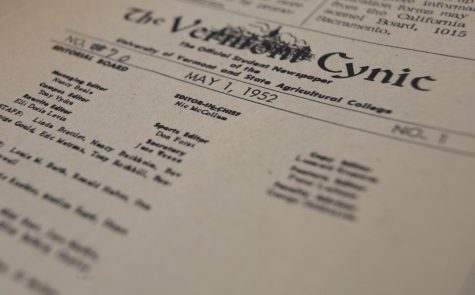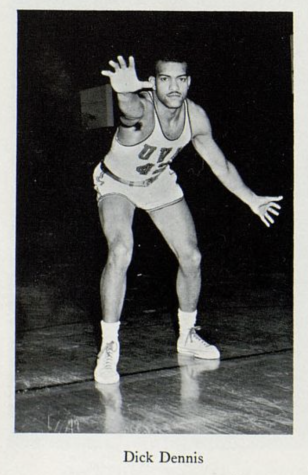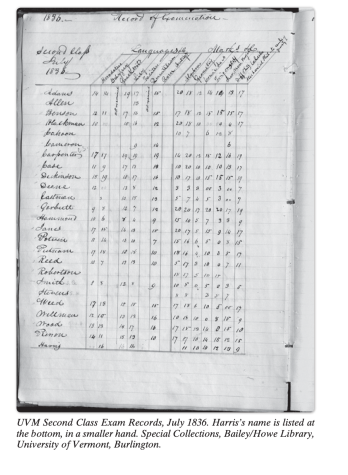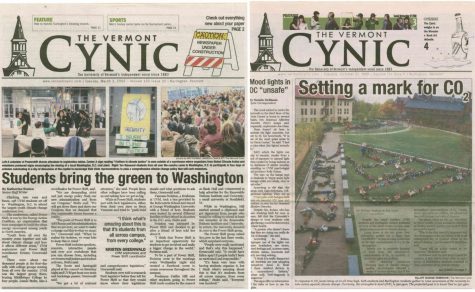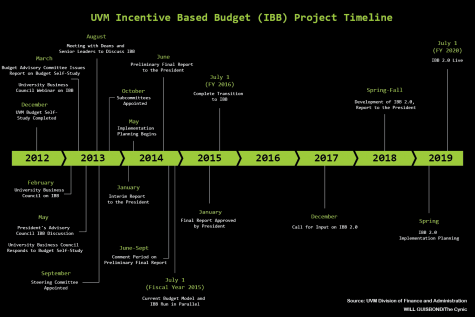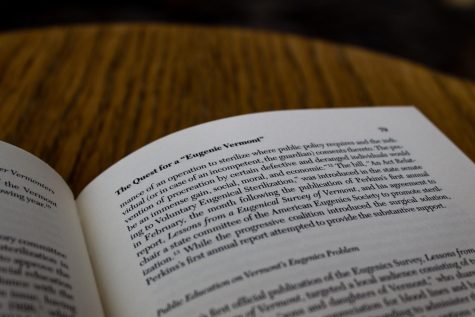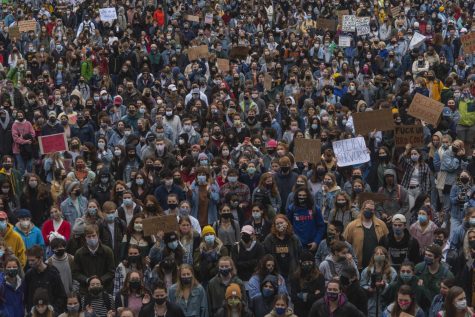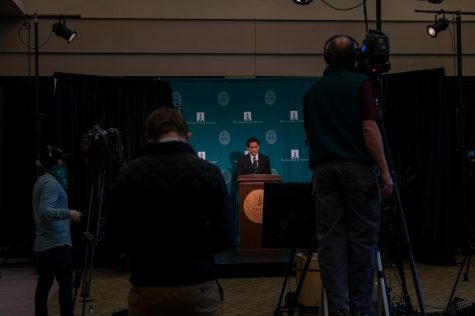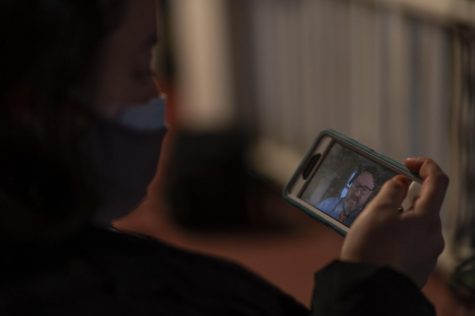Government shutdown halts research
In a college town, it can often be too easy to forget about the outside world. But one event that caught the attention of students and faculty at UVM was the government shutdown.
On Oct. 1 the federal government shut down after Congress failed to agree on a budget plan for 2014. This is the first shutdown since 1996, when all non-essential services were put on hold for a period of time between November 1995 and January 1996.
Although thousands of individuals around the country have not been able to go to work and have seen their benefits cut, UVM has yet to see very many consequences.
“We have the resources to keep going,” Vice President for Finance and Administration Richard Cate said. “There won’t be very many effects from this shutdown unless it was permanent. We do get a lot of federal funding, but we don’t depend on it from one day to the next.”
Cate said that money from loans and grants should not be affected unless an individual is applying for either of these resources during the shutdown. If that’s the case, he said, they might see a delay in their funding.
“During this time, anyone who is using federal money will see a delay in being paid,” he said. “But the University is keeping track of what’s being used and the government will just pay a little late. If the government were to say they would never send more federal money, that would be a problem, however a lag isn’t a big deal.”
Cate added that many students have already received their financial aid assistance for the semester, but for those still awaiting aid, the draw down would happen later after the shutdown is over.
“UVM isn’t going to have someone not attend school because the billing is late,” Cate said. “We want to keep things running as smoothly as possible.”
Federal Relations Director Wendy Koenig agreed with Cate.
“Student aid will continue to flow as usual,” Koenig said. “The only delays that students may experience are if they are originating a new loan or Pell grant and those delays will be in the processing of the loan or grant.”
Koenig also said that students will continue to be paid for their work study opportunities.
“UVM will cover the cost of paying students in work study programs until the shutdown is over,” she said. “No one’s work study will get cut off.”
Although some individuals feel that the shutdown’s effects are limited, others believe that UVM is already dealing with the consequences of the federal government’s temporary closure.
“The shutdown is affecting UVM in little ways,” Chair of the Political Science Department Robert Bartlett said. “Money is not coming through for grants and research, and eventually financial aid could be affected if it lasts until the next semester.”
Bartlett said that this shutdown reveals a fundamental flaw in the government, but that the shutdown isn’t surprising.
“People are trying to use every angle they can to push their political agenda,” he said. “It’s a point of leverage. The Republicans have demanded things before of President Obama and it’s worked, so they decided to try again.”
Others at UVM have seen the little effects of the shutdown that Bartlett mentioned first-hand.
“The shutdown has had a detrimental effect on me and my research,” Professor Robert Manning said. “I was supposed to go to the White Mountains National Forrest and the Marsh-Billings-Rockefeller National Historical Park in Woodstock, VT. with my graduate students for research and that trip was cancelled.”
Manning said that as a result of the shutdown, all research on national parks has been put on hold.
“Typically, the Park Studies Laboratory has about six to eight studies going on,” he said. “That’s all been put on hold now.”
Manning feels that the shutdown is especially frustrating for him and the graduate students he works with because UVM has taken on the responsibilities to conduct these studies and now it can’t be done. He said it is especially difficult for his graduate students because a lot of them were planning on writing their thesis on these projects.
Though some students might be experiencing their research being put on hold, others said they weren’t affected by the shutdown at all.
“I don’t really know much about the shutdown because it hasn’t affected me directly,” sophomore Isabel Block said. “I think if everyone in the government was smart and could agree there wouldn’t be a shutdown.”
Block also said that although she herself hasn’t experienced any effects of the shutdown, she did know students who were interested in working at National Parks that now wouldn’t be able to.
Students like senior Chelsea Kantola agreed with Block about the shutdown not affecting them directly.
“I left for England a few days after the shutdown began,” Kantola said. “Thankfully, my plans weren’t affected, but I did notice that it seemed like it took more time getting through the Washington Dulles airport, which could have been a result of less security employees but I’m not sure.”
Kantola said that on her trip, she was surprised that there wasn’t more coverage of the shutdown overseas.
“You always think of America being such a central part in the world as a whole and that everyone really cares about everything we do,” she said. “But it seemed to be very far from the truth.”
Kantola also said that people are beginning to get sick of hearing about the struggles between the two parties.
“I just think it’s ridiculous that the two parties can’t come to any sort of conclusion at this point, especially since it’s all because of health care which is supposed to be a positeral money, that would be a problem, however a lag isn’t a big deal.”
Cate added that many students have already received their federal aid assistance for the semester, but for those still awaiting aid, the draw down would happen later after the shutdown is over.
“UVM isn’t going to have someone not attend school because billing is late,” Cate said. “We want to keep things running as smoothly as possible.”
Federal Relations Director Wendy Koenig agreed with Cate.
“Student aid will continue to flow as usual,” Koenig said. “The only delays that students may experience are if they are originating a new loan or Pell grant and those delays will be in the processing of the loan or grant.”
Koenig also said that students will continue to be paid for their work study opportunities.
“UVM will cover the cost of paying students in work study programs until the shutdown is over,” she said. “No one’s work study will get cut off.”
Although some individuals feel that the shutdown’s effects are limited, others believe that UVM is already dealing with the consequences of the federal government’s temporary closure.
“The shutdown is affecting UVM in little ways,” Chair of the Political Science Department Robert Bartlett said. “Money is not coming through for grants and research, and eventually financial aid could be affected if it lasts until the next semester.”
Bartlett said that this shutdown reveals a fundamental flaw in the government, but that the shutdown isn’t surprising.
“People are trying to use every angle they can to push their political agenda,” he said. “It’s a point of leverage. The Republicans have demanded things before of President Obama and it’s worked, so they decided to try again.”
Others at UVM have seen the little effects of the shutdown that Bartlett mentioned first-hand.
“The shutdown has had a detrimental effect on me and my research,” Professor Robert Manning said. “I was supposed to go to the White Mountains National Forrest and the Marsh-Billings-Rockefeller National Historical Park in Woodstock, VT. with my graduate students for research and that trip was cancelled.”
Manning said that as a result of the shutdown, all research on national parks has been put on hold.
“Typically, the Park Studies Laboratory has about six to eight studies going on,” he said. “That’s all been put on hold now.”
Manning feels that the shutdown is especially frustrating for him and the graduate students he works with because UVM has taken on the responsibilities to conduct these studies and now it can’t be done. He said it is especially difficult for his graduate students because a lot of them were planning on writing their thesis on these projects.
Though some students might be experiencing their research being put on hold, others said they weren’t affected by the shutdown at all.
“I don’t really know much about the shutdown because it hasn’t affected me directly,” sophomore Isabel Block said.
Students like senior Chelsea Kantola agreed with Block about the shutdown not affecting them directly.
“I left for England a few days after the shutdown began,” Kantola said. “Thankfully, my plans weren’t affected, but I did notice that it seemed like it took more time getting through the Washington Dulles airport, which could have been a result of less security employees but I’m not sure.”
Kantola said that on her trip, she was surprised that there wasn’t more coverage of the shutdown overseas.
“You always think of America being such a central part in the world as a whole and that everyone really cares about everything we do,” she said. “But it seemed to be very far from the truth.”
Kantola also said that people are beginning to get sick of hearing about the struggles between the two parties.
“I just think it’s ridiculous that the two parties can’t come to any sort of conclusion at this point.”


